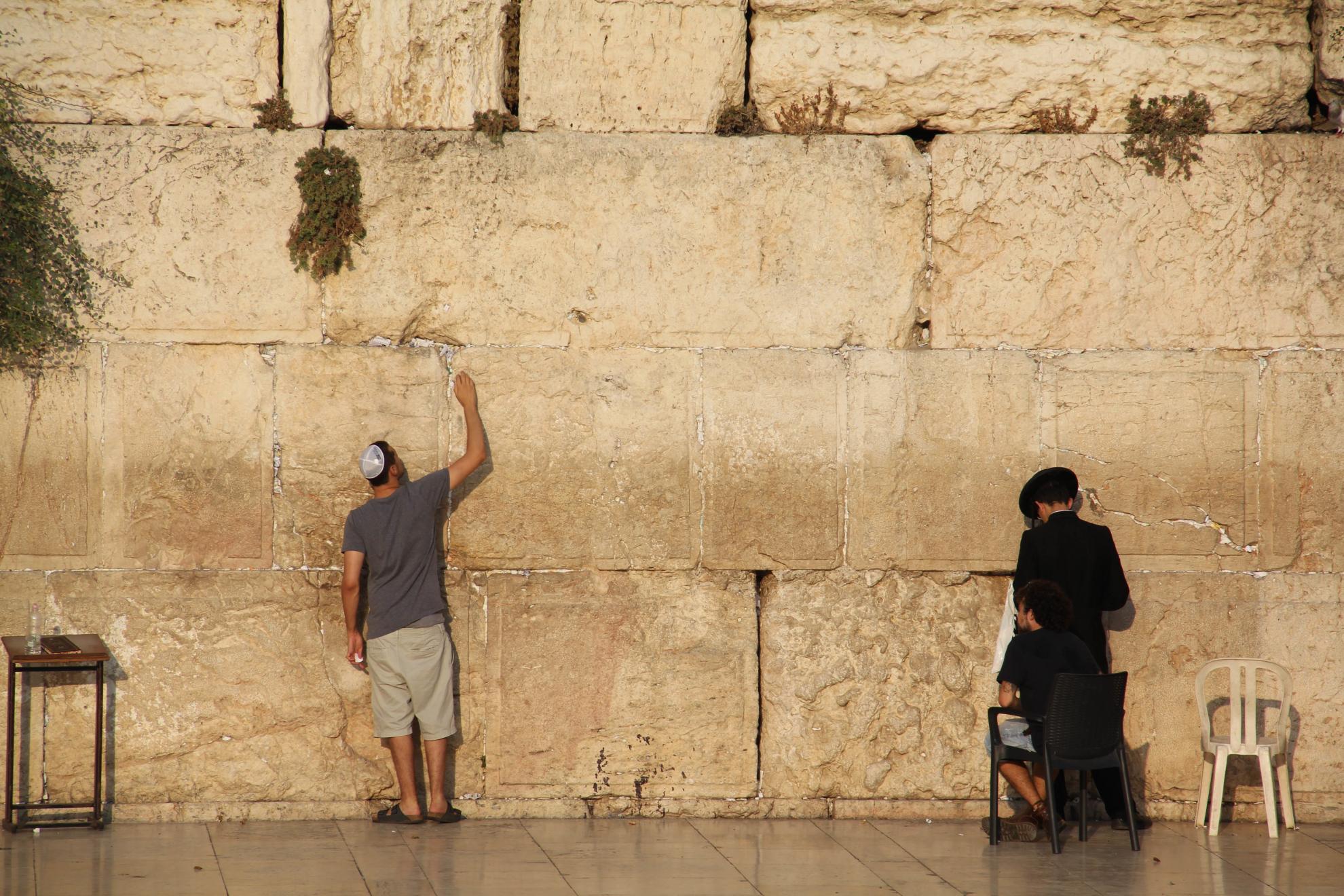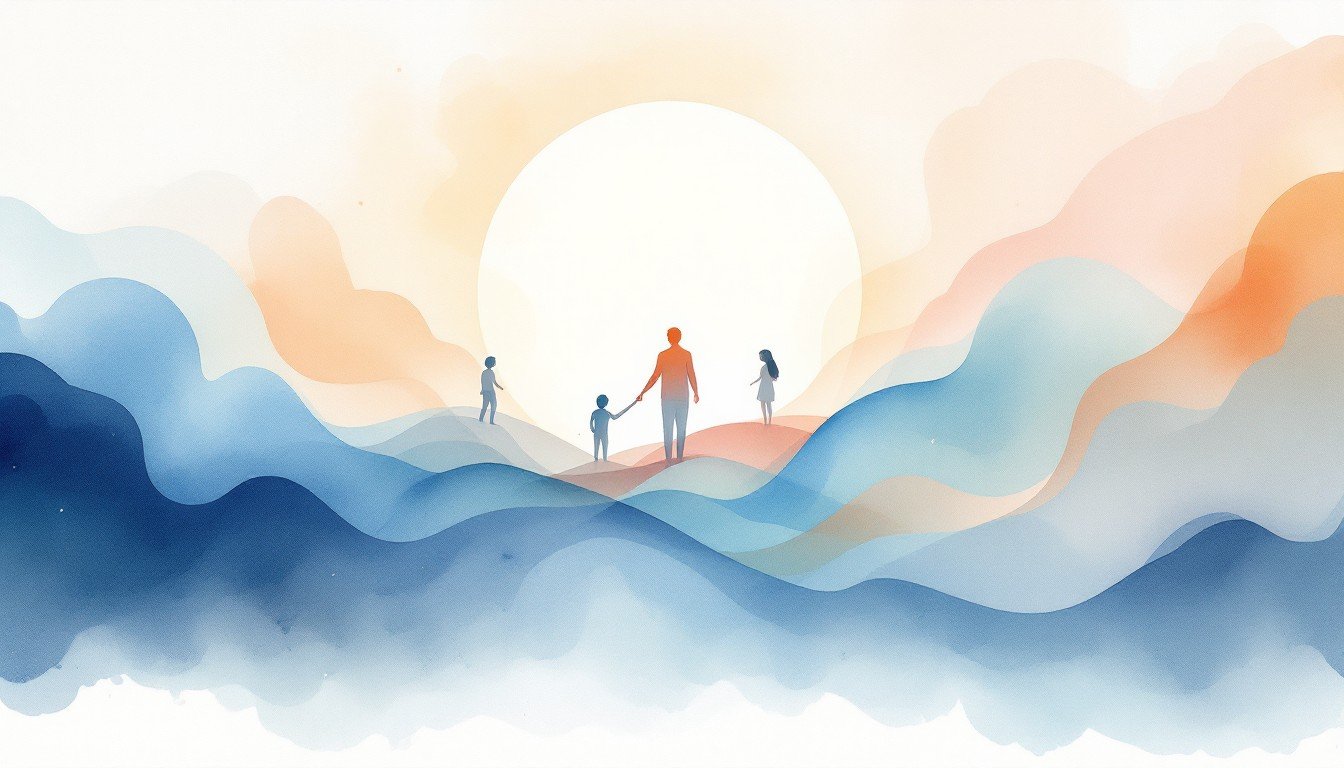June 29, 2025|ג' תמוז ה' אלפים תשפ"ה Korach 5785 - Korach & Secondary Emotions
Print ArticleWhy did Korach rebel? And why did he rebel now? Yes, of course we see in the arguments of Korach that somehow he was frustrated with the leadership of Moshe & Aharon, but what bothered him so much? And why does it come out at this particular moment in time?
Rabbi David Fohrman offers a thoughtful explanation, which begins by first asking us to take a look at Korach's name. What does קרח mean?
There is a mitzvah in the Torah that uses the same word. Much later, in Sefer Devarim we are told:
דברים (פרק יד פסוק א)
בָּנִים אַתֶּם לַיקֹוָק אֱלֹקיכֶם לֹא תִתְגֹּדְדוּ וְלֹא תָשִׂימוּ קָרְחָה בֵּין עֵינֵיכֶם לָמֵת:
Do not place a bald spot between your eyes when mourning someone who has died.
As Rashi explains, there was an ancient custom of the Emori people that when they mourned their dead they would tear out their hair, creating a bald spot on their heads. A korcha, is that bald spot, created through an extreme form of mourning.
What's even more interesting, though, is that the language used in the surrounding pesukim about this prohibition are strikingly similar to the arguments made by Korach. Korach says:
וַיִּקָּהֲלוּ עַל מֹשֶׁה וְעַל אַהֲרֹן וַיֹּאמְרוּ אֲלֵהֶם רַב לָכֶם כִּי כָל הָעֵדָה כֻּלָּם קְדֹשִׁים וּבְתוֹכָם יְקֹוָק וּמַדּוּעַ תִּתְנַשְּׂאוּ עַל קְהַל יְקֹוָק:
All the people are holy, and Hashem is among them.
In explaining why one should not make a karcha in mourning, the Torah says:
דברים (פרק יד פסוק ב)
כִּי עַם קָדוֹשׁ אַתָּה לַיקֹוָק אֱלֹקיךָ וּבְךָ בָּחַר יְקֹוָק לִהְיוֹת לוֹ לְעַם סְגֻלָּה מִכֹּל הָעַמִּים אֲשֶׁר עַל פְּנֵי הָאֲדָמָה:
Because you are a holy nation to Hashem, and He has chosen you to be a unique nation from all the nations of the world.
OK, but so what? Why would the Torah make a comparison between this prohibition of extreme mourning and the story of Korach's rebellion against Moshe?
To understand this, we need to turn to one more conversation Moshe has, not with Korach, but with his accomplices, Dasan & Aviram. They speak to Moshe in a horrifying manner, and they say:
וַיִּשְׁלַח מֹשֶׁה לִקְרֹא לְדָתָן וְלַאֲבִירָם בְּנֵי אֱלִיאָב וַיֹּאמְרוּ לֹא נַעֲלֶה: הַמְעַט כִּי הֶעֱלִיתָנוּ מֵאֶרֶץ זָבַת חָלָב וּדְבַשׁ לַהֲמִיתֵנוּ בַּמִּדְבָּר כִּי תִשְׂתָּרֵר עָלֵינוּ גַּם הִשְׂתָּרֵר:
They say, "We will not come up", presumably they won't come to speak with Moshe. And they continue: It's bad enough that you took us out the land of milk and honey to die here in the desert! You also want to rule us!
The irony, of course, is that they refer to Egypt as the land of milk & honey from which Moshe took them out. But, more importantly, they explain what this rebellion is really about. It is about mourning. The mourning the people are experiencing after the Chet HaMeraglim, the sin of the spies in last week's parsha. The punishment, of course, is that this generation will not enter the land, but rather they will die in the desert. What's clear from Dasan & Aviram, is that their main motivation is not that all the people are holy or even that they should be holy. They are simply white with rage at Moshe for having failed them.
In 1969, a Swiss-American psychiatrist named Elizabeth Kübler-Ross wrote that grief could be divided into five stages. Her observations came from years of working with terminally ill individuals. Kübler-Ross's five stages were originally devised for people who were ill but have been adapted for coping with grief. Her theory of grief became known as the Kübler-Ross model. According to Kübler-Ross, the five stages of grief are: Denial, Anger, Bargaining, Depression, and Acceptance.
There is much to say about different approaches to this idea, the fact that one does not typically go through the stages in order, but suffice it to say, there is an idea that when one experiences mourning they often find their way -- at different times -- managing through these different emotions.
What is fascinating is that if you look at the first two of the first stories that occur right after the Chet HaMeraglim, you find two of these stages. What is the first story? The Maapilim! A group of Jews who say, "we made a mistake not agreeing to go to Eretz Yisrael! Of course, if we agree to go now Hashem won't really make us stay here for 40 years! And they declare "Hineinu V'alinu - We will go up!" We would call this denial. An unwillingness to recognize what has happened to them.
And what is the next main story? The story of Korach, a man who claims he is fighting for equality for all the holy Jews and looks more like he's looking to become the leader himself. But if we're looking closely, is someone is experiencing an extreme form of grief which is coming out as anger. The arguments of Korach and his men don't really make any sense. How could all 250 of them become Kohein Gadol? How might you think that Aharon is not chosen by Hashem? Have they not been watching the turn of events over the past year in the desert? The answer, of course, is that none of it makes sense. Because when you're hot with rage you lose your ability to think thoughtfully.
And this explains the connection between the story of Korach and the prohibition of making a korcha, a bald spot in mourning. Because Korach's actions were in reality an extreme form of mourning, like the karcha.
But I'll take it even one step further. Because that same pasuk that teaches us not to make a karcha, tells us one other related halacha: לֹא תִתְגֹּדְדוּ - which literally means not to cut oneself in mourning. Again, a similar pagan approach to extreme mourning.
But Chazal use this halacha to teach a different rabbinic rule: Don't create agudos agudos. Don't create factions in the Jewish people. Rather, we should make sure that we have uniform guidelines within a community to create achdus, unity. Why did Chazal decide to learn this idea of unity from a prohibition against extreme mourning practices? Because, as we see in the story of Korach, when people allow their emotions, and certainly their anger to get out of hand, when grieving goes unchecked and unprocessed, it can literally tear a community apart.
In the world of psychology, there is a discussion about primary vs. secondary emotions. Primary emotions are the immediate feeling you have in response to an experience. For example, we hear a loud noise and feel fear. Or I hear something very sad, so I cry. Primary emotions typically are adaptive and can be helpful.
But then, after experiencing the primary emotion, we can have an emotion about the emotion, or what's called a "Secondary emotion". I cried because of that experience and now I feel embarrassed. Or I felt scared because of a loud noise and I become angry at the person who made the noise. And oftentimes, the secondary emotion can be a judgment of ourselves. "I can't believe I cried, I'm so hypersensitive, I should cut that out" and now you feel ashamed at how you responded. A secondary emotion can also be an overreaction, beginning to think catastrophic thoughts after hearing the loud noise which initially just made you a little scared. This secondary emotion can lead to more anxiety and panic.
Studies have found that the more a person can understand their primary and secondary emotions, the more they will be able to respond calmly and thoughtfully to the challenging situation in which they find themselves.
The story of Korach, we could argue, is a case study in secondary emotions gone awry, as the anger and frustration of Korach and his followers, which were really secondary to the sadness of the grief of their new reality, threatened to not only destroy their lives but also create terrible machlokes in all of Klal Yisrael.
Our emotional bandwidth can run thin at times, and Korach is a cautionary tale about what happens when we don't have the self-awareness it takes to manage the myriad relationships in our lives. But when we are prepared to understand where those feelings come from and to know how to manage them, we can breed an environment of less friction, less machlokes, and more Shalom.




